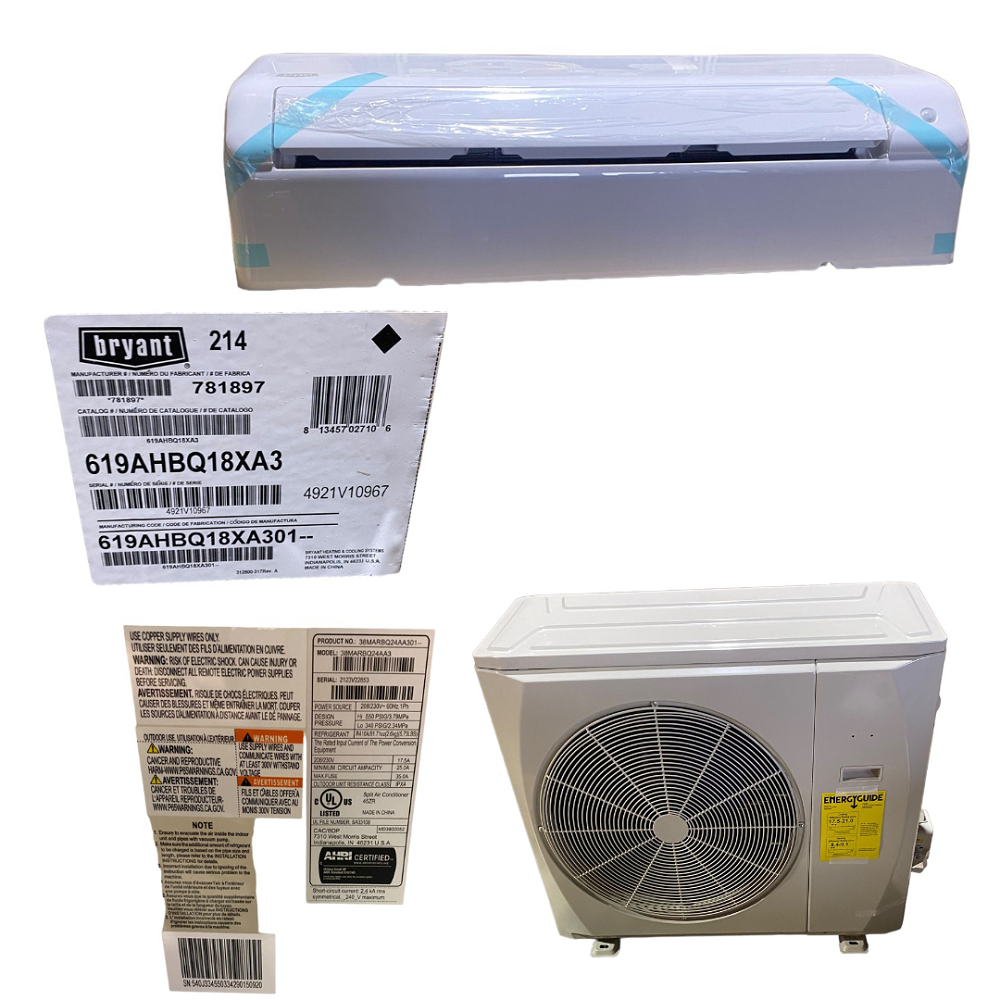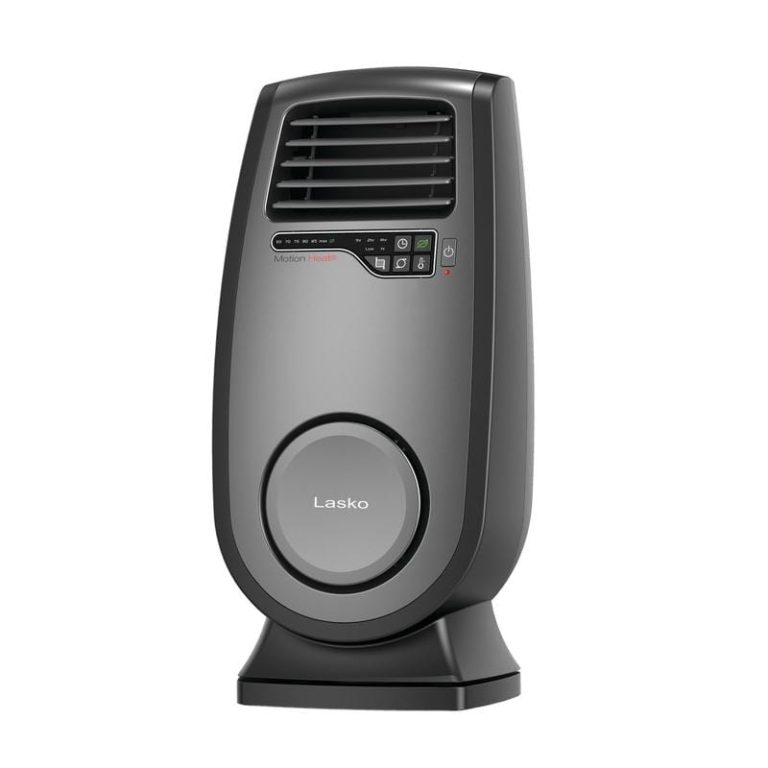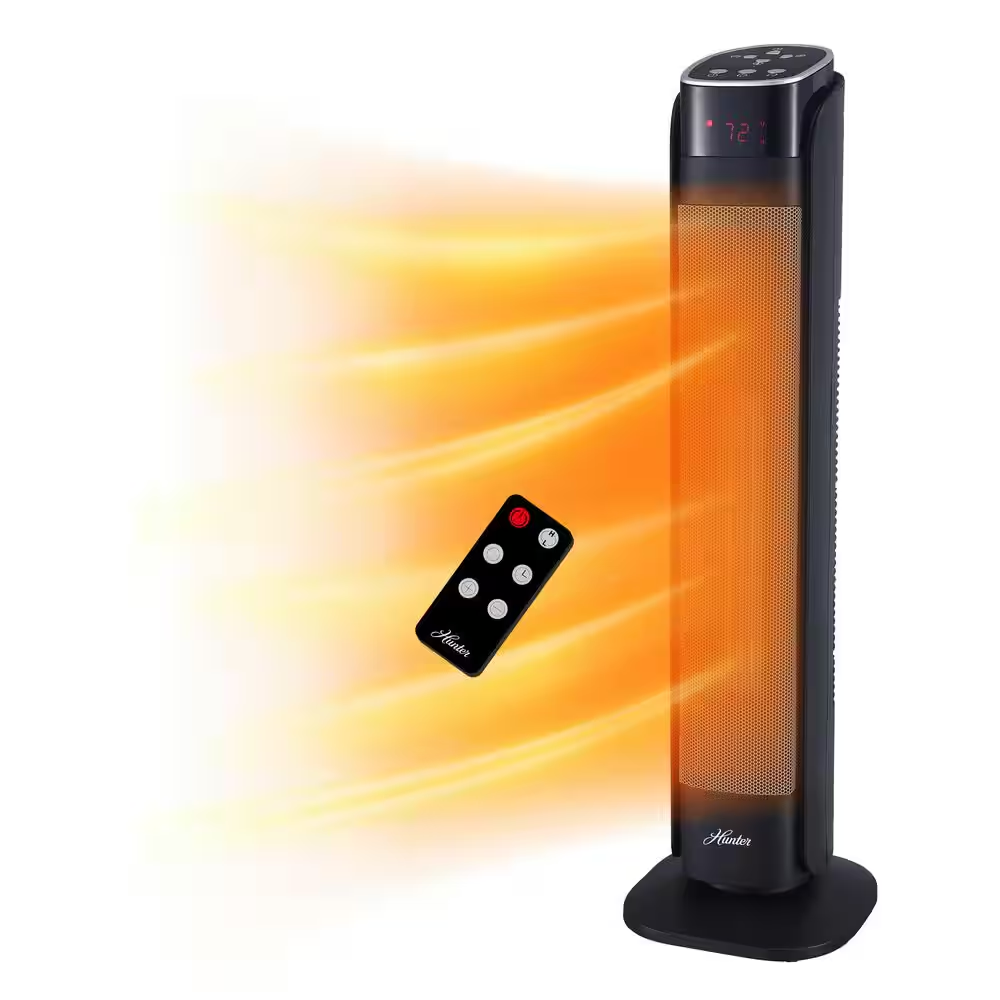Introduction to Bryant Heat Pumps
When shopping for efficient home heating and cooling, Bryant heat pumps are a key contender. Recognized for quality and value, this brand has a strong reputation. Below, we’ll explore what makes Bryant a top choice for many homeowners.
Bryant Brand Overview
Bryant is a well-known brand in the HVAC sector. Over a century in business, they offer a range of heat pumps to suit various needs. Their focus lies in blending performance with affordability, which can save you money on energy bills.
Heat Pump Functionality and Role in Home Comfort
Heat pumps work by transferring heat rather than generating it. This makes them a versatile option for both heating and cooling homes. Bryant heat pumps provide comfort and cost savings, perfect for climates with mild to moderate temperatures.
Price Range and Affordability
When it comes to heating and cooling solutions, price is a pivotal factor. Bryant heat pumps offer a range of options to cater to varying budgets, striking a balance between cost efficiency and dependable functionality.
Cost Comparison with Other Brands
Bryant positions itself as a value-oriented brand, often cheaper than elite brands like Carrier by roughly 5-15%. Compared to Goodman, however, Bryant is regarded as a mid-range option, aiming for durability without the premium price tag attached to some high-end models.
What Influences Bryant Heat Pump Prices
The cost of Bryant heat pumps isn’t static; it fluctuates based on a multitude of facets. These encompass the model’s size, efficiency ratings (marked by SEER and HSPF scores), and the type of compressor it uses. Plus, the location and choice of dealer can significantly tweak the final price. Keep in mind installation fees boost the overall expense, and it’s pivotal to consult with a trusted HVAC pro to net a fair deal.
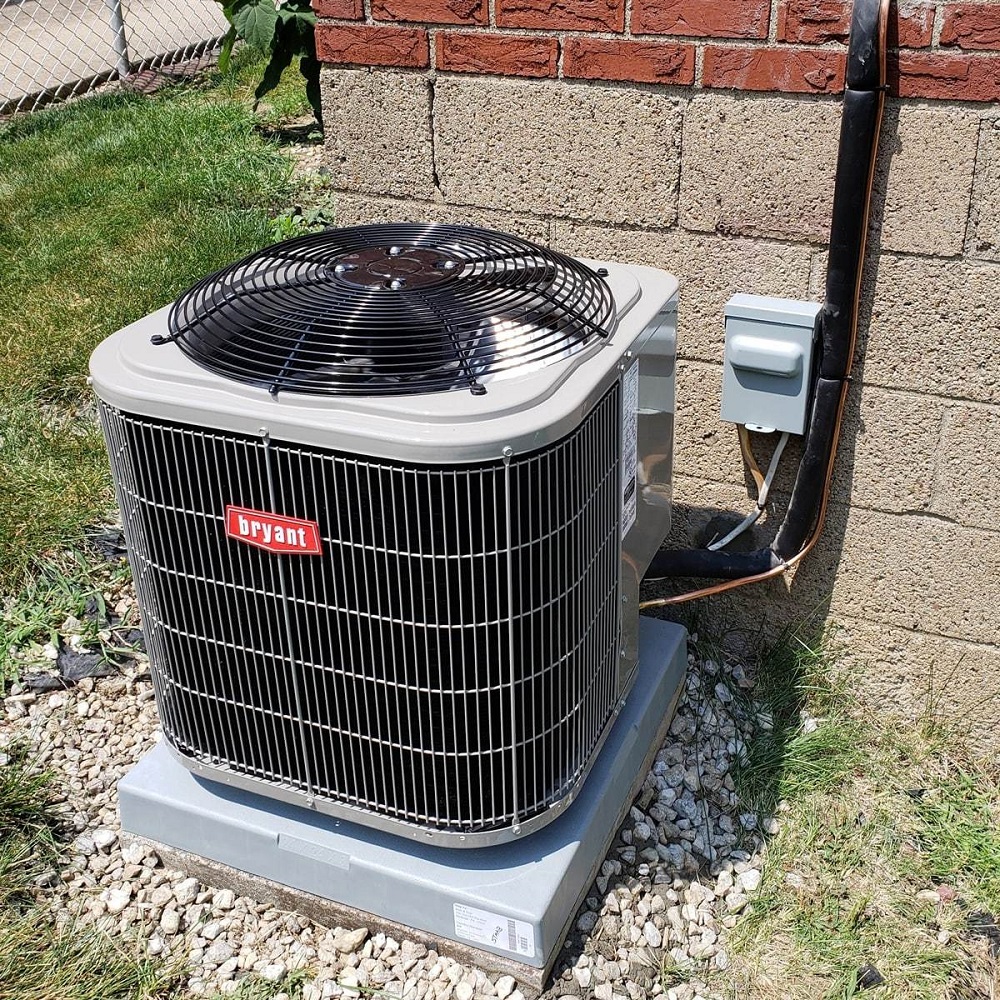
Bryant Heat Pump Series
Choosing the right Bryant heat pump for your needs involves understanding their series ranges. Each offers different features and price points, tailored to various customer preferences and budget constraints.
Evolution? Series: Premium Options
Bryant’s Evolution Series represents their top-tier products. These heat pumps boast the highest SEER and HSPF ratings, ensuring maximum energy efficiency and performance. Premium options come with advanced technology like variable-speed compressors for precise temperature management. Expect enhanced comfort, quieter operation, and better humidity control. These are the priciest but provide significant long-term savings.
Preferred? Series: Mid-Range Options
The Preferred Series is the middle ground in Bryant’s offerings. It strikes a balance between cost and efficiency. With respectable SEER ratings and the option for single or two-stage compressors, these pumps offer a significant upgrade over standard models. They deliver reliable performance and improved energy savings at a more accessible price point.
Legacy? Series: Budget-Friendly Options
For those prioritizing immediate cost savings, the Legacy Series is the most budget-conscious choice. These heat pumps provide basic functionality and comfort with lower SEER and HSPF ratings than their Evolution or Preferred counterparts. Single-stage compressors are standard in this series, offering a no-frills heating and cooling solution. It’s the ideal line for those wanting Bryant’s reliability without the higher investment of the premium lines.
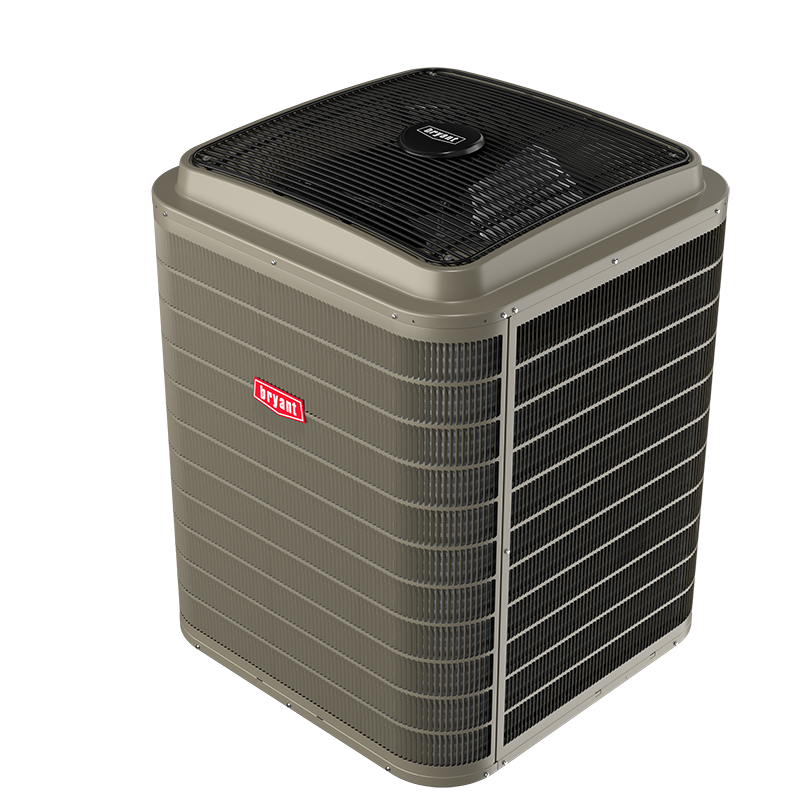
Energy Efficiency and Performance
When picking a heat pump, energy efficiency is key. Let’s break down what this means for Bryant heat pumps.
SEER and HSPF Ratings Explained
For cooling, the SEER (Seasonal Energy Efficiency Ratio) rating matters. It tells you how efficient a heat pump is when it’s hot out. Bryant’s SEER ratings can go from 14 to 20.5, higher numbers being better.
Now, for heating, the HSPF (Heating Seasonal Performance Factor) is important. This measures warmth efficiency in the chill. You’ll find Bryant pumps range from an HSPF of 8.2 to 13. High ratings mean warmer winters with less energy use.
Compressor Types: Single-Stage, Two-Stage, and Variable-Stage
Compressors in heat pumps control your home’s temp. Bryant offers three types:
- Single-Stage: This works full blast whenever it’s on. It’s the simplest type, but not the most energy-smart.
- Two-Stage: These can adjust speeds — low for mild days, high for extremes. Better for energy use and keeping a steady home temp.
- Variable-Stage: The top of the line. These can shift speeds in small jumps, giving the best energy efficiency and temp control. They cost more but save more over time.
Efficient models like these keep your house comfy and your energy bills down. Bryant heat pumps mix quality with performance, so you get a good deal for what you pay.
Proven Reliability and Customer Satisfaction
Bryant heat pumps have a strong track record for dependability. Homeowners who choose Bryant often find that their heat pumps provide consistent, reliable service year after year. The brand’s commitment to quality has helped to build a loyal customer base.
Positive Consumer Feedback
Many users rave about their Bryant heat pumps. They often mention how these units work well without constant repairs. Positive reviews frequently highlight the savings on energy bills. They also praise the smooth operation and comfort they experience during different seasons.
Comparison with Competitor Brands
When looking at other brands, Bryant stands out for its value. It is usually less expensive than Carrier but similar in performance. Compared to Goodman, Bryant is a bit more but focuses more on durability. This gives shoppers clear choices based on their budget and long-term needs.
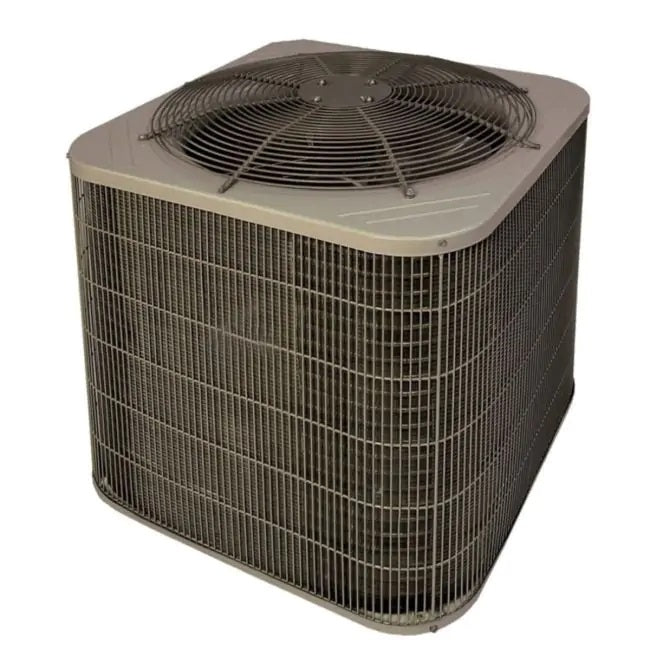
Installation and Warranty Considerations
Choosing the right heat pump is just the start. Correct installation and warranty are vital.
Importance of Professional Installation
Pro installation ensures your Bryant heat pump works well.
A skilled pro can prevent common install errors.
They optimize your system for your home’s needs.
A good install saves you from future costs and hassles.
Understanding Bryant’s Warranty Terms
Bryant heat pumps come with a reliable warranty.
Register your Bryant product within 90 days.
This secures a 10-year parts limited warranty.
Check the details; some models have different terms.
Talk to your dealer about labor warranty options.
Always keep your purchase and warranty documents safe.
Pros and Cons of Choosing Bryant
Choosing the right heat pump comes with weighing the pros and cons. Let’s look at what Bryant offers.
Advantages of Bryant Heat Pumps
Bryant heat pumps stand out for their value and performance. Here’s why people often go for them:
- Affordability: Bryant models are less costly than many high-end brands, offering a good price point.
- Quality: Known for durability, Bryant heat pumps tend to last, giving you a solid return on investment.
- Energy Efficiency: With high SEER and HSPF ratings, these heat pumps can help lower energy bills.
- Variety: Bryant offers models to fit different needs, from premium to budget-friendly options.
- Dehumidification: Excellent at removing humidity, these units make homes more comfortable, especially in damp climates.
- Eco-Friendly: These heat pumps use less energy, which is great for the planet.
Potential Drawbacks to Consider
No product is without its flaws. Here are some potential drawbacks of Bryant heat pumps:
- Climate Restrictions: Not ideal for extreme temperatures, which may require additional HVAC systems.
- Upfront Costs: More expensive than some economy brands, though long-term savings often balance this.
- Warranty Terms: Some find Bryant’s warranty less attractive compared to other brands, affecting long-term maintenance costs.
- Brand Perception: While reliable, Bryant doesn’t carry the same prestige as some pricier names, which might influence resale value.
Remember, an informed decision means looking at both sides. Take these points into account when choosing your heat pump.
Final Verdict and Recommendations
When evaluating Bryant heat pumps, the discussions above highlight multiple critical factors.
Summary of Key Points
Bryant heat pumps blend quality, efficiency, and value. Affordable options under Bryant’s belt offer consumers a middle ground between the high-end units and budget-friendly systems. With higher SEER and HSPF ratings, they are poised to save users on energy costs in the long run, especially with the high-efficiency models in their Evolution and Preferred series.
Models feature single-stage, two-stage, and variable-stage compressors catering to diverse climate needs and efficiency preferences. Their strong track record, bolstered by positive feedback for reliability and performance, positions Bryant as a trustworthy brand in the market.
While warranty terms and the potential need for additional HVAC equipment in extreme climates are drawbacks, the overall sentiment towards Bryant heat pumps is favorable, mainly due to their cost-effectiveness and robust performance. Consumers drawn to energy savings and eco-friendly options may find Bryant heat pumps particularly appealing despite the initial investment cost.
Making an Informed Decision for Your Home
Choosing a heat pump for your home involves considering your local climate, the heat pump’s efficiency, and your budget. Prioritize professional installation to ensure peak performance and safeguard your warranty. Evaluating the pros and cons carefully will help you make a choice that suits your long-term heating and cooling needs.
Keep in mind that Bryant’s range has something for everyone – from those seeking cutting-edge technology to those needing a straightforward, cost-effective solution. Consult with a local HVAC pro for personalized advice tailored to your home and lifestyle. With the right approach, a Bryant heat pump could be a smart addition to your home, promising comfort and cost savings for years to come.
